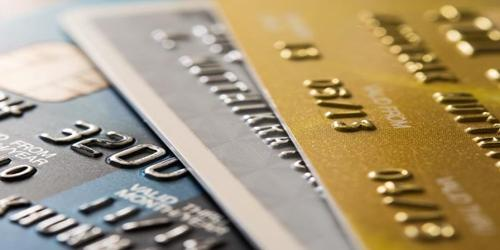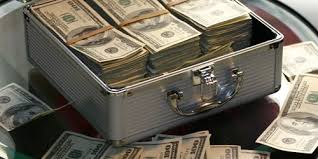A Complete Guide to What Is Bank Credit?
Jan 08, 2024 By Triston Martin
Introduction
What Is Bank Credit? If an institution or bank offers a person or business a loan, it is known as "bank credit." It is the total of the bank's available resources. Overall, a bank's credit limit is determined by the borrower's ability to make timely payments and the number of funds on hand at the institution.
Credit
The term "credit" has a wide range of meanings in the financial world, but for the most part, it refers to an arrangement in which the borrower receives cash from the lending institution and then repays the lender with the loan the interest that's accrued. Additionally, credit can refer to a company or individual's capacity for debt repayment or for building a credit history. A company's balance sheet changes affect its assets, equity, and liabilities.

How Bank Credit Works
Lenders use a variety of factors to determine how much credit they should be granted. Most lenders check your credit report to see if you're a good risk for them. The more money you can borrow, the better off you'll be if you have good or excellent credit. They can also look at your employment and income history to see if you can afford to pay back the debt you owe them. If you have a high DTI (debt-to-income ratio, also known as DTI), you will also be rated on this factor. The majority of lenders prefer DTI ratios of 43% or less. A lender will consider the value of your collateral if you are applying for secured credit (more on this later). In addition, any debt that is attached to the collateral will be subtracted from its value.
Characteristics of Bank Credit
The following are characteristics of bank credit. It is possible to borrow money if you have the title "borrower." It is typically a bank that lends money. How Much Does It Matter? A fixed interest rate or a floating interest rate can be used. LIBOR and MIBOR are used as benchmarks to determine the floating interest rate. To avoid a prepayment penalty, the terms of repayment stated in the loan agreement must be strictly adhered to. Lending Method: Typically, loans are made in cash but can also be made in raw materials or a fixed asset.
Economic Function
A Bank's Economic Purposes Banks perform various economic tasks, some of which are listed below: issuing cash in the form of banknotes, checks, or payment at a customer's request. Interbank clearing and settlement systems allow banks to act as both payment or collection agents for their customers participating in interbank clearing and settlement systems. As intermediaries, banks can make single or multiple loans.
Types of Bank Credit
Credit Secured
Cash or tangible property is often used as collateral for a debt. For an unsecured home loan, the property serves as collateral. A bank may also require a cash deposit from certain customers to obtain a secured credit card. If a borrower defaults on the loan, banks are less likely to take on additional risk by offering secured credit. For example, banks may take the collateral, sell it, and use the proceeds to repay some or all of the debt. Low-interest rates and more lenient requirements and terms are typical characteristics of this type of credit, backed by collateral.
Credit That is Not Secured
In contrast, there is no collateral to support it. Due to the greater risk of default, these credit instruments are riskier than secured debt. As a result, unsecured creditors typically receive higher interest rates from banks.
Why Does Bank Credit Matter?
When borrowing money, "bank credit" refers to the total amount of borrowing power a business or individual has with a bank. . Still, other borrower's creditworthiness largely determines the cost and amount of bank credit factors such as the borrower's past relationship, income, and money usage are also considered.

Things You Should Keep in Mind
Lender-borrower contracts are commonly used to describe how credit works. Creditworthiness, or a company's credit history, is another term for credit. Credit may be used to reduce assets or liabilities, depending on the type of financial accounting used. It could also save money or increase profits. There are two ways to borrow money: credit and loans. With credit, the institution gives the customer a specific amount of money that can be used regardless of how much it is used, how little it is used, or how much is not used.
Conclusion
This is the total amount of money a business or company can borrow from the bank. The borrower's credit rating, as well as their income, collateral assets, and any existing debt, is used to determine if they are eligible for a loan. Credit from a bank can be secured or unprotected. Mortgages and credit cards are just two examples of bank credit. Commercial lines of credit and automobile loans are examples of this.

How to Create a Savings Bond with Your Tax Refund
Using IRS Form 8888, you can designate how much of your refund should go to paper savings bonds and how much should go to you directly in order to purchase savings bonds (by check or by direct deposit to your bank account). You must also indicate who will own the bonds on Form 8888.
Oct 17, 2023 Triston Martin

How long must the policy's beneficiary wait to file a claim?
How long does a claimant typically have to wait before receiving money from a life insurance policy? Many people wait a long time after a death occurs before making a life insurance claim. A loved one's policy recipient may be taken aback by their newfound financial standing. The question is whether the policyholder's heirs need to worry about losing out on the payout if months or years have passed since the death of the insured.
Nov 30, 2023 Susan Kelly

What are Minimum-Interest Rules
Any money given to family or friends as a loan or a gift that will incur interest automatically requires a tax payment. The IRS set minimum-interest rules using the Applicable Federal Rate (AFR) metric to ensure a lower limit on how much interest should be paid on these loans.
Dec 22, 2023 Susan Kelly

Top 10 Tips for Financial Advisors
There has never been a better time in history to be a financial counsellor, regardless of what you've heard or read. There will be 10,000 Baby Boomers retiring every day over the next 15 years. In part, because they believe they lack enough, most individuals haven't figured out how to save for their golden years, which is understandable. In addition, see: Baby Boomer Investments: The Top 10 for more details.
Nov 29, 2023 Susan Kelly

Top 5 Most Effective Tips To Become a Freelancer
To have a complete say over one's working conditions is a tremendous perk of freelancing. If you're a freelancer, you can accomplish your job whenever and whenever you choose. Such allurement is a significant factor in the expansion of the freelance market. According to a recent survey on freelancing conducted by Upwork, upwards of a third of the American workforce is currently engaged in freelance work. But how can one begin a career in freelance work? You've reached the perfect spot if you want to start freelancing but don't know where to start. This post will look at the seven strategies you may use in 2022 to launch a successful freelancing career
Dec 14, 2023 Susan Kelly

From Compliance to Security: Top Five Reasons Banks Close Your Account
Discover the common reasons why banks may have decided to close your account. Also, understand Things to Do After a Bank Closes Your Account.
Dec 14, 2023 Triston Martin